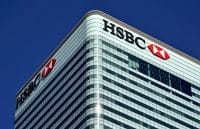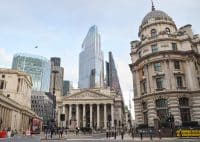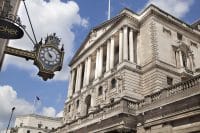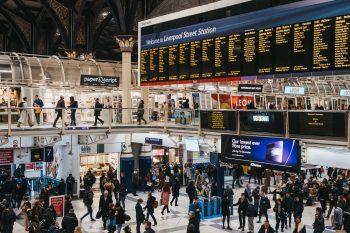Home » UK Business News » HSBC buys out UK arm of collapsed Silicon Valley Bank for just £1
HSBC buys out UK arm of collapsed Silicon Valley Bank for just £1
https://www.whatjobs.com/news/united-kingdom/uk-business-news/hsbc-buys-out-uk-arm-of-collapsed-silicon-valley-bank-for-just-1

By Nagasunder in UK Business News, posted March 13, 2023
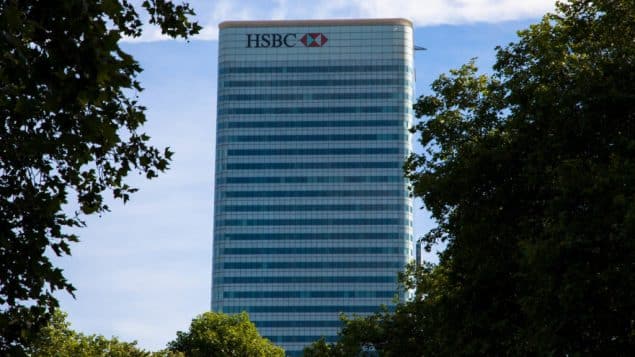
Tech firms have been handed a lifeline after HSBC stepped in to rescue the UK arm of the collapsed Silicon Valley Bank.
There had been fears UK businesses would have been massively impacted after US regulators shut down the bank on Friday, March 10.
HBSC bought the bank for just £1 and the deal was hammered out over the course of the night to be completed by the start of trading on Monday, March 13.
The deal involved no taxpayer money.
Read More: HSBC to close 114 banks in Britain from April 2023
Customers and businesses who were unable to withdraw funds will now be able to do so as usual.
The Treasury said the deal, which was hammered out with HSBC over the course of the night in order to be completed before trading resumed on Monday, involved no taxpayer money.
Silicon Valley Bank, which specialised in lending to technology companies, was the largest bank failure in the United States since 2008.
Its disintegration sent shockwaves through the tech industry due to the potential impact on businesses, with some firms telling the BBC that they could go bankrupt if deposits were not secured.
According to the government, money in the failed US bank is safe.
Read More: Butternut Box to create Europe’s largest pet food factory with HSBC UK backing
The agreement came after all-night talks involving chancellor Jeremy Hunt, the prime minister, the governor of the Bank of England, HSBC executives, and civil servants to find a solution before firms resumed trading on Monday morning.
The Bank of England said no other UK banks had been "materially affected" by SVB's collapse and said the wider banking system remained "safe, sound, and well capitalised".
Although SVB's UK arm was small, with just over 3,000 business customers, its failure would have posed a risk to a sector that the government considers critical to the UK's future economic success.
Read More: Marmalade of London eyes international expansion with HSBC backing
Mr. Hunt said such firms were often "fragile".
He said: "Some of them only had bank accounts with SVB UK and so for that reason, we were faced with a situation where could have seen some of our most important companies, our most strategic companies, wiped out and that would have been extremely dangerous,"
Mr. Hunt insisted there was "never a systemic risk to our financial stability in the UK".
The deal was a "huge relief," according to Sebastian Weidt, CEO of Universal Quantum, a tech company that employs about 40 people and holds all of its funds with SVB.
Read More: WHO’S GETTING WHAT? Rio Tinto, HSBC Bank, Barclays Bank
He told the BBC that the last 48 to 72 hours had been "unbelievably stressful," and said while the company was working to mitigate the potential impact, a deal would have been "pretty detrimental to the entire sector" if one had not been reached.
Mr. Mather said: "We had enough money in bank accounts outside the UK and enough revenue coming through each week from our customers that we could look our staff in the eyes at nine o'clock this morning and say we can make payroll in two weeks, but it would have been very uncertain from then."
What went wrong at Silicon Valley Bank?
The rescue comes after the US agreed to a deal for customers in the US bank as well, with all depositors fully protected.
SVB specialised in lending to start-up businesses, and it served nearly half of the US venture-backed technology and healthcare companies that went public last year.
The company began in 1983 as a California bank.
But 30 years on, it was under pressure as higher interest rates made it more difficult for its customers to raise funds through private fundraising or share sales.
More customers were withdrawing deposits, a trend that accelerated last week.
Read More: Barclays to close 15 more branches this year
The bank collapsed on Friday after failing to raise enough capital to cover losses from the sale of assets, primarily US government bonds, that were impacted by higher interest rates.
The failure sparked fears of the demise of many smaller UK tech firms.
It led to more than 200 UK tech CEOs signing a letter to Mr. Hunt pleading for the government to intervene.
According to one source in a tech firm, the collapse could have affected 30 percent to 40 percent of UK start-ups employing up to 50,000 people.
But while the deal with HSBC has been widely received, the Bank of London - a UK clearing bank - said it was a "missed opportunity".
Read More: Ex-Royal Mail boss believes postal service’s talks with the union have been poorly handled
The bank, which was among firms involved in early-stage talks and had put forward a rescue bid for SVB UK, said: "It cannot be right that, once again, the heritage banks that have provided a poor service to UK entrepreneurs over many years benefit from their already dominant position."
Due to being much bigger, the failure of its US parent company was a much more dangerous situation.
This explains the approach taken there, where other US banks will help fund its rescue through banking deposit insurance schemes.
Need Career Advice? Get employment skills advice at all levels of your career
The episode highlights the stresses emerging in the financial system as a result of the recent sharp rise in interest rates.
Other stresses may emerge, but experts say this not a sign of impending doom - like that seen when Lehman Brothers went bankrupt - which shook the entire financial system to its core.
The Treasury and the Bank of England will no doubt point to this quick response as an example of lessons learned during the financial crisis, but the fact that a bank with concentrated importance in one sector was sold for £1 raises questions about the regulatory regime.
Source: BBC
Follow us on YouTube, Twitter, LinkedIn, and Facebook




